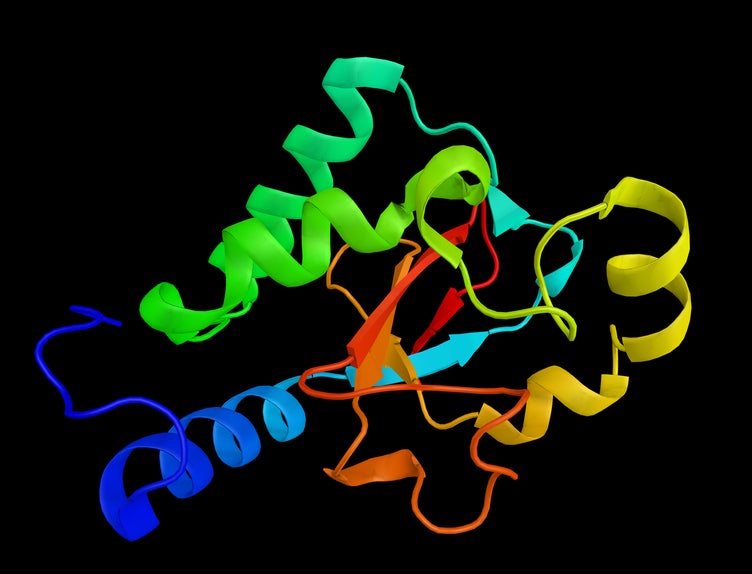
Cambridge-based deubiquitylating enzyme (DUB)-focused Mission Therapeutics has received a £12m equity investment in a fundraising round led by Pfizer Ventures, the pharma giant’s venture capital arm. Specific details of the round – including the other investors – were not disclosed.
This builds on Mission’s existing relationship with Pfizer Ventures. “Mission has been a Pfizer Ventures portfolio company since 2013, and since that time we have had a seat on the company’s board,” explains Pfizer Ventures senior managing partner Barbara Dalton. “We have financially supported Mission Therapeutics over the years through multiple investment rounds.”

Discover B2B Marketing That Performs
Combine business intelligence and editorial excellence to reach engaged professionals across 36 leading media platforms.
Mission intends to use this injection of funding to support “further development of its platform”, something which Pfizer Ventures is “proud to be able to support”, according to Dalton. The funding will help Mission “to take its USP30 [DUB] programme towards the clinic”, notes CEO Anker Lundemose.
At the same time, Pfizer has signed an evaluation and option agreement to access Mission’s DUB platform to “validate promising drug targets and explore biological pathways of interest across multiple therapeutic areas of interest to Pfizer,” explains Pfizer head of medicine design Charlotte Allerton.
Making DUBs druggable
Ubiquitin is a small regulatory protein present in most cells in the body. Through a process called ubiquitylation, ubiquitin controls protein homeostasis and cell degradation.
This process is regulated by either ubiquitin writers – such as E3 ligases – and ubiquitin erasers, known as DUBs. Protein homeostasis can be influenced by “either activating the activator [E3 ligases] or inhibiting the inhibitor [DUBs]”, and Mission is focused on the latter because it allows for the generation of small molecules, explains Lundemose.

US Tariffs are shifting - will you react or anticipate?
Don’t let policy changes catch you off guard. Stay proactive with real-time data and expert analysis.
By GlobalDataSince DUBs have a role in many different human cells and human diseases, they have attracted significant interest as drug targets for around 15 years. However, Allerton explains they “have historically been challenging to target”. This is because of issues linked with specificity and selectivity.
But, over the last six years or so, Mission has managed to overcome this challenge by building a novel chemistry platform that supports the discovery and development of first-in-class DUB-targeting drugs.
Mission’s DUB platform integrates insights into DUB target validation, DUB-specific screening cascades and unique chemistry to successfully develop drugs that selectively target disease-associated DUBs.
Mission’s USP30 programme
The company’s platform has focused on developing four programmes targeting the mitochondrial DUB USP30 for mitochondrial disease, neurodegeneration, acute kidney injury (AKI) and fibrosis.
“USP30 is the only DUB in the outer membrane of the mitochondria,” explains Lundemose. “It controls mitochondria quality and function.” Inhibiting USP30 activates mitophagy, which results in quicker degradation and recycling of damaged mitochondria, bringing significant benefits in various diseases.
Preventing the build-up of dysfunctional mitochondria could overcome the underlying cause of various rare mitochondrial diseases, rather than just the symptoms. The removal of dysfunctional mitochondria also helps to prevent impaired neuronal function that causes Parkinson’s Disease and the pathogenesis of AKI.
Mission has promising pre-clinical data for all indications with its molecules that inhibit USP30. The next step, supported by this $15m equity investment, will be picking one of these programmes to advance into clinical trials next year. Lundemose thinks the AKI programme is the most likely to advance into the clinic first.
Scientific collaboration with Pfizer
Alongside its own proprietary USP30 programme, Lundamose explains Mission is keen to validate its platform through collaboration with big pharma. This explains why the firm has an existing agreement with AbbVie and was keen to formalise the smaller scientific collaborations it has had with Pfizer over the years.
Pfizer is keen to collaborate with Mission because its chemistry platform “shows promise for the potential development of innovative drugs” and “to unveil new targets on pathways of interest to treating disease”, notes Allerton.
Regarding the terms of the agreement, Allerton explains: “Pfizer will take the lead on the internal disease area research and design of phenotypic screens, which will allow interrogation of DUB biology and the assessment of their utility as drug targets.”
The disease areas that will be focused upon has not been disclosed. However, Allerton emphasises: “This work is part of Pfizer’s ongoing interest in identifying first-in-class targets that offer transformational treatment opportunities for critical diseases, including pursuing options to expand the druggable genome.”




